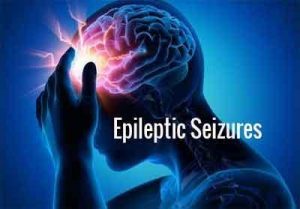- Home
- Editorial
- News
- Practice Guidelines
- Anesthesiology Guidelines
- Cancer Guidelines
- Cardiac Sciences Guidelines
- Critical Care Guidelines
- Dentistry Guidelines
- Dermatology Guidelines
- Diabetes and Endo Guidelines
- Diagnostics Guidelines
- ENT Guidelines
- Featured Practice Guidelines
- Gastroenterology Guidelines
- Geriatrics Guidelines
- Medicine Guidelines
- Nephrology Guidelines
- Neurosciences Guidelines
- Obs and Gynae Guidelines
- Ophthalmology Guidelines
- Orthopaedics Guidelines
- Paediatrics Guidelines
- Psychiatry Guidelines
- Pulmonology Guidelines
- Radiology Guidelines
- Surgery Guidelines
- Urology Guidelines
Psychogenic non-epileptic seizures due to low level of a hormone neuropeptide : Study

In Denmark, as many as 2,000 people - in particular women - suffer from spasms which are similar to epileptic seizures, but which cannot be measured, prevented, treated or explained. Until now, as with the publication of a study from Aarhus University, researchers show that patients with the seizures - which are known as psychogenic non-epileptic seizures (PNES) in medical language - have a lower level of the hormone neuropeptide Y (NPY) in their blood. This is a hormone that is associated with an increased resilience for dealing with stress. In the study, the same patients have reported a higher degree of different types of abuse such as sexual abuse, violence, bullying, feelings of abandonment and the experience of the reduced quality of life.
The findings indicate that there is a biological reason for developing PNES. According to one of the researchers behind the study, associate professor in the Department of Clinical Medicine, Michael Winterdahl, this is the big step towards improved diagnosis and treatment. He calls the result, just published in the scientific journal Stress, an important discovery so far for understanding the seizures, which are categorized under the group of disorders known as functional disorders.
"In the past, patients were called hysterical women. We stopped calling patients that a long time ago but the patients are still severely affected by a disorder that is difficult to understand and describe, both for the patients themselves and the outside world. And so far, it has not been possible to identify why people develop these seizures. It just appears to be an unfortunate combination of various factors which predispose, trigger and maintain the seizures," says Michael Winterdahl.
PNES seizures look like epileptic seizures with cramping in the arms and legs and tossing of the head. A seizure can last from a few seconds to many hours. Many of the patients have been undergoing epilepsy treatment for years without other effects than the side effects from the epilepsy medicine.
"It clearly places a terrible strain on both the person affected and their relatives. Moreover, it is frustrating for the patients to find that there is not a physiological cause which you can do something about," says Michael Winterdahl.
In the study, the researchers measured the concentration of a wide range of hormones in the blood of 15 women with PNES and 60 control subjects. In addition to significantly lower NPY values in the PNES patients compared with the healthy control group, the researchers also found changes in stress hormones. The same changes are also seen in people with post-traumatic stress disorder.
PNES seizures belong under functional disorders, which is a collective term for up to thirty physical diseases where it is not clear whether the disease is physically or mentally contingent. A large part of the patients suffering from PNES has been through exhausting and futile diagnostic process at hospitals and psychiatric clinics before being referred to the Research Clinic for Functional Disorders and Psychosomatics.
Michael Winterdahl assesses that the research results can have a bearing on how the healthcare system deals with PNES patients.
"We have now finally demonstrated a biological cause for these otherwise unexplained seizures. This knowledge alone can be enough to remove the sense of powerlessness experienced by both patients and practitioners," says Michael Winterdahl. He can imagine the new knowledge about NPY's role being used to screen for vulnerability towards prolonged stress in the future, perhaps even in the form of a simple blood sample like those used in the study.
"We know that the amount of NPY that is released in a stressful situation is genetically determined. Some people are genetically more resistant to stress, while others are particularly vulnerable," says Michael Winterdahl.

Disclaimer: This site is primarily intended for healthcare professionals. Any content/information on this website does not replace the advice of medical and/or health professionals and should not be construed as medical/diagnostic advice/endorsement or prescription. Use of this site is subject to our terms of use, privacy policy, advertisement policy. © 2020 Minerva Medical Treatment Pvt Ltd